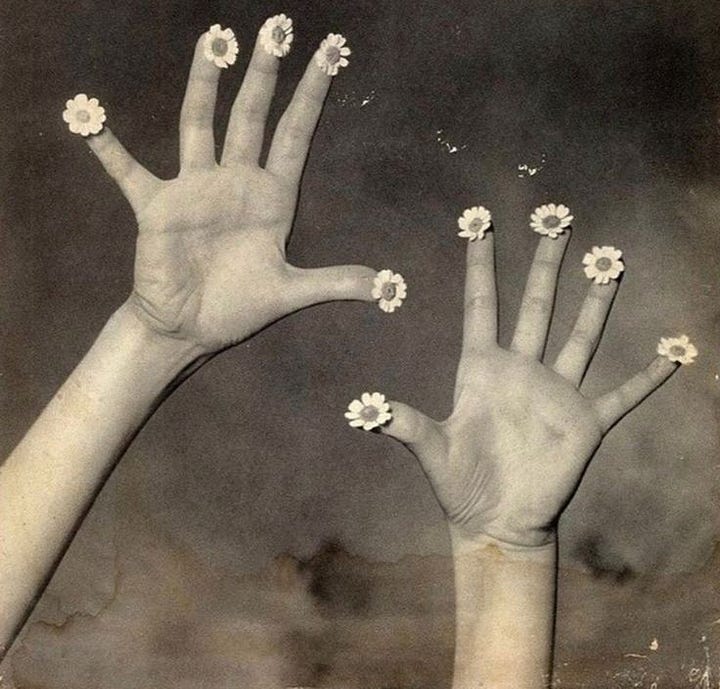CREATIVE WRITING: WRITE WHAT SCARES YOU
Emotional risk shapes the stories we’re meant to tell
“I write entirely to find out what I’m thinking, what I’m looking at, what I see and what it means. What I want and what I fear.” Joan Didion
The stories that scare us hold a special power. We tiptoe around what raises our pulse. But what if the very fears we avoid are actually pointing us toward the richest fountain of material?
I researched the psychology behind writing what scares you. How fear can be both enemy and friend. How to tell protective fear from the avoidance that blocks us. How writers can harness vulnerability without simply trauma dumping. How fear shows up in procrastination, perfectionism, avoidance. Ways to write honest scenes without overwhelm.
This read is free. But I really appreciate any support. Upgrading to paid means getting access to all posts older than 2 months and special in-depth posts like creative writing and copywriting tools or industry insights. I’m keeping the 50% offer active for a few more days 🖤
Fear as a signpost
“The cave you fear to enter holds the treasure you seek.” Joseph Campbell
In creative terms, our fear may point directly at the story or truth that will resonate most. It’s the scene we’re nervous to write, the topic that feels too personal, too bold, and precisely the one that might transform our work. Far from being a stop sign, fear can be a signpost.


We experience fear not just in life-threatening situations, but whenever we step outside our comfort zone. Our brains react to a one-star review or a raw personal essay with the same fight-or-flight alarm as if we were facing a predator. The mind doesn’t always distinguish between physical danger and emotional risk. This means the anxiety before writing a vulnerable chapter is not necessarily a signal to flee. It might simply be our brain misreading the situation.
“The more important a call or action is to our soul’s evolution, the more Resistance we will feel toward pursuing it.” Steven Pressfield
In other words, the projects that could most help us grow, the ones that carry our deepest truths, tend to stir up the most fear and inner resistance.
Seen in this light, fear becomes a compass pointing to where the energy is. If an idea scares you because it’s too close to the bone, that may be exactly why it needs writing.
Losses we haven’t processed. Questions we’re afraid to ask. Experiences that shaped us. Instead of automatically avoiding these, we can get curious. Why does this subject make my heart race? Of course, not all fear is a beckoning call. Sometimes fear truly says danger. The key is learning to tell the difference.
Protective fear vs. avoidant fear
There is helpful fear, the instinct that keeps us safe. And hindering fear, the kind that just holds us back.
Protective fear is that wise voice that says this is too much for you right now, or be careful who you share this with. It’s the gut feeling that a piece of personal writing needs more distance before it’s published, or the healthy nerves that keep us from exposing unprocessed trauma. If writing about a painful memory sends you into a panic, protective fear might be suggesting you pause and seek support. It’s fear alerting you that something in your psyche is on fire and needs care. It can still be healing to write about it. But with care and kept for yourself.
Avoidant or blocking fear, on the other hand, is more like a cunning saboteur. It’s the fear that whispers every excuse in your ear to keep you from writing at all. This fear isn’t guarding you from genuine harm. It’s guarding you from growth. It often stems from imagined dangers. Fear of failure. Fear of judgment. Fear of not being good enough. Left unchecked, this fear can become a creativity-killer.
Ask: Is this fear keeping me safe from real harm, or just keeping me comfortably small?
Protective fear feels like a boundary respected. Blocking fear feels like regret and frustration.
Feeling uneasy about publishing a deeply personal essay while you’re still in the thick of healing is likely a protective impulse, honoring your emotional well-being. But feeling uneasy about publishing any essay unless it’s on a level of perfection you can’t achieve at your level of being, avoidant fear. To get better, you need feedback. You need those parts that make you cringe later to write them differently next time. When it’s out there, it’s not forgotten in a drawer. You’ll come back to it. Maybe you’ll delete it and write something better. Maybe it’s better perceived than you expected.
Gut-check
Protective Fear: Not now, not this way. Respect your limits. E.g. a memoirist decides to wait until after therapy to write about a trauma. The delay feels healthy.
Blocking Fear: Not ever, you’re not good enough. Diminishes your growth. E.g. a writer avoids submitting their work anywhere due to fear of rejection. The avoidance feels like stagnation.
Fear’s disguises
Fear isn’t always sweaty palms, heart racing. That’s extreme. More often, and especially in writing, it masquerades as laziness, distraction, even diligence.
We call it procrastination, but often at its core is fear. Fear that the words won’t match the idea in our heads. Fear that we spend all this time and it won’t pay off. Fear we’ll write a few words and feel like we need to recover. Even fear of what might come out on the page. A learning curve really is like a steep hill we need to climb. It’s exhausting. But it’s supposed to be. So is going for a run, awful, but we can learn to love it until it becomes the most rewarding, even relaxing thing.
Another guise of fear is perfectionism. This is the inner critic that demands each sentence shine like polished silver while you’re still writing the first draft. It’s an impossible standard that makes starting feel daunting and finishing feel unattainable. Perfectionism is the fear of being imperfect. Don’t write anything unless it’s brilliant, it tells us. Or better yet, maybe don’t write at all.
Nobel laureate Kazuo Ishiguro has spoken about how he nearly stalled out on The Remains of the Day until he gave himself permission to write terribly at first. During a self-imposed crash writing period, he deliberately wrote free-hand, not caring about the style, just pushing forward. Only later did he edit. Ishiguro essentially let his fear of imperfection win to the point that he embraced it instead of letting it stop him.
Avoidant fear can also show up as over-researching or endless planning. You convince yourself you just need to read five more books on a subject before you can write about it. But really, you’re delaying the moment you have to put your own ideas on the line. Or you rewrite the first chapter twenty times but never move on, because staying in the familiar beginning is safer than advancing into the unknown middle of the story.
All these are fear-based patterns. As Pressfield would call it, Resistance with a capital R. That force that rises up to block important creative work. And indeed, the more the work means to us, the sneakier and stronger these avoidance tactics can become.
Disarming fear’s disguises


The first step is to notice them without judgment. Why are you not writing? You are physically capable. And your head is not empty. So is it fear?
Naming the fear takes some of its power away. I’m afraid this story will disappoint me. I’m afraid of revealing myself. Even just acknowledging that can spur compassion.
Practical tricks can help, too. Set a timer for 15 minutes and promise yourself you can stop after that. Often, once you get into it, you will want to keep going. But if not, it’s fine. Or make it your goal to write a terrible first draft. This gives your fear of imperfection nothing to fight because you’ve already lowered the bar.
Remember that feeling fear doesn’t mean you’re a bad or weak writer. It means you’re a human one. Probably a good one since you can think critically. If you had zero fear, you might not be pushing yourself enough. Take that as a strange encouragement.
Avoiding trauma-dumping
You’ve decided to write the personal essay about your family secret, the novel inspired by your painful breakup, the poem that makes you cry as you draft it. How do you approach it with emotional honesty without falling into the trap of oversharing or re-traumatizing yourself and your readers? How do we write vulnerably rather than just venting our trauma on the page?
First, it’s important to recognize that writing about deep, painful experiences is double-edged. On one side, it can be cathartic and incredibly powerful for both writer and reader. When done thoughtfully. On the other, diving into trauma too quickly or unfiltered can harm the writer’s well-being and overwhelm the audience. The goal is to find that sweet spot of vulnerability.
Emotional honesty in writing means we don’t shy away from the hard truths, but we also take care to shape those truths into a story that we ourselves and others can process and appreciate. It’s the difference between a raw diary entry and a story.
Treat intense emotional content like boiling water. If you let it all surge at once, it can scald you and boil over. Instead, release the steam little by little.
“To write sustainably about trauma, you need to operate more like a tea kettle that lets a small, steady stream of feeling pour from you.” Lisa Ellison.
You don’t have to put every horrific detail on the page to be honest. You can choose which moments to focus on, and which to leave out or allude to. It’s not about censoring the truth, but about moderation and intention. In fact, Ellison suggests literally rating potential scenes by their emotional intensity. Scenes that are a 9 or 10 out of 10 in pain may be material you need to process in therapy before you can write them for the public. There’s no shame in that.
Writing can be therapeutic, but it isn’t a substitute for actual therapy when the wounds are still raw and bleeding.
Maybe you write around the edges of the central trauma first, or you fictionalize it to give yourself some distance. As you gain understanding and strength, you can dig closer to the core. Remember, you are not obligated to share anything. You can make it abstract. You control the narrative. You have the power to give your past a new meaning.
Focus not just on what happened, but what it means. Psychologists talk about the importance of meaning-making in processing trauma. The idea is that simply recounting a traumatic event isn’t enough. One needs to find some personal meaning or insight from it to truly heal or to create art from it. In writing, this translates to moving beyond just catharsis. Catharsis is a start.
Pouring out your feelings onto the page can feel relieving in the moment. But finding meaning, offering yourself resolution, can be even better. Look for the narrative arc in your experience. How did you change? What did you learn? Can that inspire a message for a fictional story that is meaningful for you and later for others? Writing with meaning turns personal pain into something more universal.
Why does this memory stick with me? What false belief did I carry from it? What truth am I seeking now? By threading those reflections into the narrative, you transform a trauma tale into a story of humanity that readers can connect with, rather than feel bludgeoned by.
Write the first draft for you, and the later drafts for your reader
Get it all out for yourself. In revision, step back and think about shape, clarity, and what a reader needs. Perhaps you add context for a painful scene, or a moment of reflection after a burst of raw emotion, to help the reader process it. Perhaps you weave in lightness or hope in small measures so the darkness isn’t relentless.
Take care of yourself in this process. Writing what scares you can be emotionally exhausting. You might feel re-exposed to old wounds. This is where self-care routines come in. Grounding yourself after a heavy writing session, seeking support from friends or professionals, reminding yourself that you are more than this moment. More than this story.
The vulnerability hangover
Hitting publish on that deeply personal piece or finishing that chapter that scared you is a triumphant moment. But often, right after the bravery comes the backlash inside ourselves. A day or two after sharing your work, a wave of doubt and regret washes over you. In my case it comes minutes later.
Is this trash? Did I go too far? Will people think less of me? Why did I reveal all that? This is actually called the vulnerability hangover.
Just as an alcohol hangover leaves you feeling sick and regretful after a night of indulgence, a vulnerability hangover is the sense of shame and fear after taking an emotional risk. You open your heart on the page, and later your social survival instinct kicks in, panicking that you’ve exposed yourself to judgment or rejection.
This feeling is not only normal, it’s a sign that you did something meaningful. If you feel a vulnerability hangover, chances are you were courageous. You showed up and let yourself be seen.
Knowing this doesn’t necessarily erase the discomfort, but it can help to expect it. After writing something that scares you, plan for a emotional come-down. It might manifest as anxiety, second-guessing, or just a deep cringe.
Remind yourself why you wrote what you wrote. Remember that the value of your truth isn’t measured in likes from strangers.
Courage is a muscle. By going through the full cycle of fear, writing, vulnerability hangover, and eventually, growth, you build resilience. You learn that you can survive exposure and even thrive in it. The nightmares you anticipated likely didn’t come true. No one laughed at you, and you didn’t fall apart emotionally. What did happen is you created something authentic. And authenticity, as uncomfortable as it can feel in the short term, leads to long-term satisfaction.
Fearless writers
Ocean Vuong
Ocean Vuong’s poetry and his novel On Earth We’re Briefly Gorgeous delve into fear-laden territory. War trauma, queer identity, family wounds. As a Vietnamese American queer writer, Vuong chose to write a novel in the form of a letter that his mother (who cannot read English) would likely never read. Imagine the fear and freedom in that choice. He could be utterly honest, yet feared how naked his soul was on the page for the world. Vuong has said that every morning, he asks himself whether he will use fear or compassion as the fuel for his work. He acknowledges fear’s presence, but consciously tries to pivot toward compassion. In an interview, he observed that “fear is ultimately energy… My fear is useful only when I’m able to use it to connect to other people”.
Kazuo Ishiguro
Ishiguro’s relationship with fear in writing is twofold. In his process, he has shown fearlessness by venturing outside of his comfort zones. Each of his novels is quite different, he’s tackled everything from an English butler’s suppressed emotions (The Remains of the Day) to a futuristic dystopia (Never Let Me Go) to an Arthurian fable about memory (The Buried Giant). He once scrapped a nearly complete novel because he felt it was too similar to his prior work, forcing himself to start fresh on something that scared him creatively. But perhaps most instructive is Ishiguro’s advice on overcoming the fear of imperfection.
As mentioned, he overcame a year of creative blockage by allowing himself to write a “bad” first draft rapidly. It was an act of courage to possibly fail. To accept that his initial pages might be ugly. That courage paid off. It’s a reminder that fear of not being good can only be defeated by giving yourself permission to be not good, at first.
Ishiguro has also spoken about the fear writers have of audience backlash in the age of the internet. He has voiced concern that young authors today self-censor because they’re afraid of being trolled or cancelled. In saying this, Ishiguro is basically urging writers not to let the fear of others’ reactions silence their authentic voice.
Write what’s real in you


When you write what scares you, you’re likely writing what’s real in you. Readers feel that. They crave it. It creates an emotional resonance that flat, safe writing often lacks.
Think of the books and essays that have moved you most. Chances are, the author was laying something on the line, touching a nerve of their own.
“You own everything that happened to you. If people wanted you to write warmly about them, they should have behaved better.” Anne Lamott.
You have the right to tell your difficult stories. The fears, failures, and longings that you might hesitate to put into words are the very material that can set your writing apart. If someone treated you badly, you are allowed to write about it. But also, you are allowed to write lighthearted rom-coms or sci-fi adventures and still infuse them with pieces of your truth. It doesn’t need to be heavy to be true. The point is that you should challenge yourself. If it scares you to write a happy ending for fear of being sentimental, try it. If it scares you to write a villain that shares some of your own flaws, do it.
Thanks for reading. If you liked this posts you might like the below :)
FIND YOUR WRITER'S VOICE
Paradoxically, as many writing mentors will tell you, finding your voice is less like discovering a new land and more like coming home.







Yes. This is the way.
i really enjoyed this ❤️